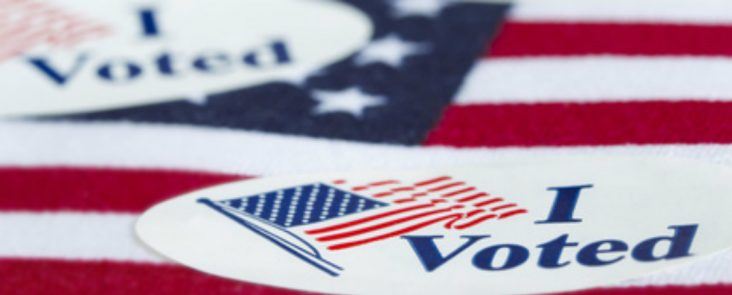Fear of foreign interference hangs over U.S. midterm elections
by October 21, 2018 8:32 am 378 views

As the Robert Mueller special investigation into Russia’s involvement in the 2016 election nears 525 days, the pale of further interference in the Nov. 6 midterms still hangs over the American ballot box as early voting jumpstarts the nation’s electoral process on Monday (Oct. 22).
In the recent months leading up to the midterm elections, state and federal election officials, U.S. intelligence and cybersecurity experts and policymakers have held several top-level meetings with key technology executives and other private industry leaders to make sure the tabulated votes are not compromised on Nov. 6.
In late August, the U.S. Department of Homeland Security (DHS) was joined by the Federal Bureau of Investigation (FBI), Facebook and Microsoft to host a briefing for the National Association of Secretaries of State (NASS) and the National Association of State Election Directors (NASED) on recent actions taken in the public and private sectors to thwart foreign threats.
A month later in St. Louis, national, state and local election authorities joined officials from Homeland Security and the U.S. Elections Infrastructure — Information Sharing and Analysis Center to discuss ways to mitigate threats and vulnerabilities leading to the midterms.
Arkansas Secretary of State Mark Martin, who is a NASED member and sits on NASS’ Cybersecurity Committee, attended both of those summer meetings in Washington, D.C. and St. Louis. Although Martin would not speak directly with Talk Business & Politics concerning the summits, SOS spokesman Chris Powell said the secretary and department staff have met with U.S. Homeland Security officials and Facebook representatives to discuss election security.
“We have also joined and received updates from the newly established Elections Infrastructure Information Sharing and Analysis Center (EI-ISAC) and regularly receive election security updates,” said Powell. “Our statewide vendor, ES&S, has made numerous security upgrades to its (election) systems as well and is working closely with DHS.”
Following that D.C. summit, ES&S announced a new partnership with multiple Department of Homeland Security (DHS) officials to conduct “cyber hygiene scans” of the public-facing internet sites, develop election security best practices and monitor and share other cyber threat information.
The Nebraska elections technology firm, which oversees Arkansas’ election grid and voting systems in more than 40 others states, also said it would work with the federal government to raise the “security awareness” of election officials and the voting public.
“The latest technology and active partnerships enable ES&S, together with state and local elections officials, to strengthen the democratic process and elevate the protection of the critical elections infrastructure to a new level of security, accountability and reliability,” said ES&S President and CEO Tom Burt in a statement.
FACEBOOK INFLUENCE
That Washington, D.C., meeting attended by Martin and other state elections officials in mid-August came only two weeks after Facebook officials made the surprise announcement they had detected a coordinated influence campaign by foreign actors to possibly undermine the upcoming 2018 midterms by targeting divisive political issues on social media.
According to details from that meeting in the nation’s capital, there was widespread criticism of the social media platform during those meetings. Facebook officials at the D.C. summit countered that the social media giant is collaborating and held a meeting following an earlier conference hosted by Facebook and the nation’s lead election security officials to share information on actions being taken to combat malicious interference operations.
Keith Ingram, Texas’ top election officials and president-elect of NASED, said during the meeting that protecting the November election would take a group effort from government and industry.
“NASED values the opportunity to hear from companies like Facebook and Microsoft about the steps they’ve taken to curtail malfeasance on their platforms. We are encouraged by their partnership, and that of our other private sector partners, as we approach the November general election,” said Ingram.
However, in the run-up to early voting in Arkansas and other states, further concerns about election interference from Russia and others have spilled out in the open. Three weeks ago, speaking before the United Nations, President Donald Trump also accused China of ramping up efforts to meddle in the midterms to damage him politically.
Last week, just as Facebook announced the launch of its “elections war room” to halt cyberattacks, political disinformation and fake news, the company’s former security chief warned it was too late for the social media giant and the federal government to prevent midterm interference or even the presidential election two years away.
“One of the real reasons that I believe we’re not well prepared for a secure election in 2018 or 2020 is because we are not working off of the same set of facts that we had in 2016,” former Facebook Security Chief Alex Stamos said while speaking Tuesday at a lecture event at Stanford University.
Stamos is the former Facebook executive who oversaw the company’s investigation into manipulation of the 2016 U.S. election. The retired tech executive is now part of a research team at Stanford studying intelligence failures that happened during the 2016 U.S. election.
SOS: ARKANSAS POLLS ARE SECURE
As those election worries grow with only two weeks before election day, the Secretary of State’s office is confident concerning the integrity of the Arkansas voting booth. Powell emphasized that although Arkansas’ newly purchased voting system is digital and has the latest technological innovations, “it is never connected to the internet.”
“So, it is not subject to hacking, as many might think,” noting that some states’ voting systems are protected by two-factor authentication that were targeted by Russian hackers in the 2016 election.
“In addition, the (Arkansas) voting and tabulating equipment is safeguarded by multiple layers of physical security, locks, passwords, and procedures at the local level,” Powell said. “Arkansans can go to the polls as always and be confident that the election process is secure.”
